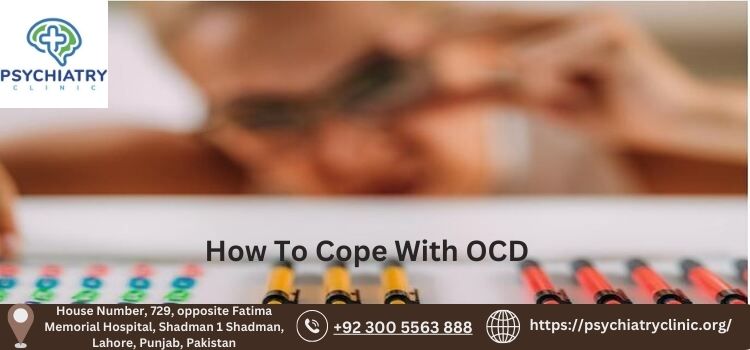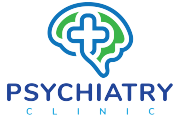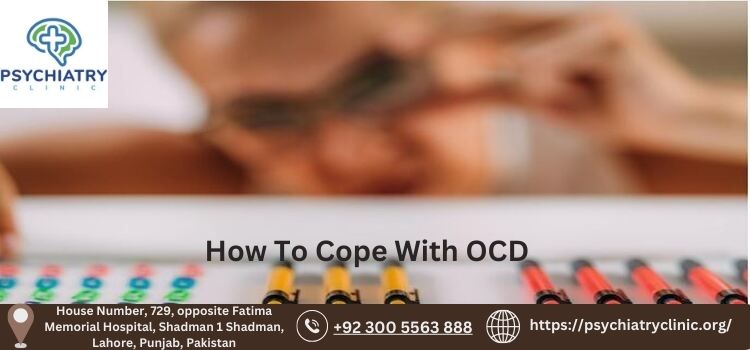How To Cope With OCD? Comprehensive Guide
Obsessive-compulsive disorder (OCD) is a mental health condition that affects millions of people worldwide. It is often characterized by unwanted and intrusive thoughts, feelings, or behaviors that can be difficult to control. People should be aware of how to cope with OCD.
In this blog post, we will provide a comprehensive guide on how to cope with OCD, including different coping strategies and tips for managing symptoms. We hope this information will be helpful for anyone struggling with OCD or those seeking to support a loved one with the condition.
Let’s dive in.
How To Cope With OCD?

OCD is characterized by unwanted and intrusive thoughts or behaviors that can be unsettling, distressing, and time-consuming. These obsessions and compulsions may vary from person to person but often revolve around themes of cleanliness, symmetry, or orderliness. Some people may also experience hoarding tendencies.
While there is no definitive cure for OCD, it is possible to manage and cope with the condition through a combination of therapy, medication, and self-care techniques. Here are some effective strategies that can help individuals cope with OCD:
1. Seek Professional Help
The first step in coping with OCD is to seek professional help. A therapist or mental health professional can provide you with the necessary support, guidance, and treatment options tailored to your specific needs. They can also help you understand your symptoms better and develop coping strategies to manage them effectively.
2. Practice Mindfulness
Mindfulness techniques such as meditation, deep breathing, and yoga can help individuals with OCD learn to manage their thoughts and emotions. These techniques can help reduce stress, anxiety, and unwanted thoughts that often trigger OCD behaviors.
3. Challenge Your Thoughts
People with OCD frequently experience intrusive and irrational thoughts, which can be challenging to shake off. Therefore, it is essential to challenge these thoughts by asking yourself questions such as “Is this thought based on reality?” or “What evidence do I have to support this thought?” This can help you gain a more realistic perspective and reduce the power of obsessive thoughts.
4. Establish A Routine
Having a routine can be helpful for individuals with OCD as it provides structure and predictability in their day-to-day lives. This can help reduce anxiety and provide a sense of control, which is often lacking in people with OCD. Additionally, having a routine can also help individuals stick to their treatment plan and cope with any setbacks that may occur.
5. Utilize Exposure and Response Prevention (ERP) Therapy
ERP therapy is a type of cognitive-behavioral therapy specifically designed for OCD. It involves gradually exposing an individual to their fears or triggers while refraining from engaging in compulsive behaviors. This can help reduce the anxiety associated with obsessions and teach individuals to resist the urge to engage in compulsive behaviors.
6. Connect With Others
Living with OCD can be isolating, but connecting with others who may have similar experiences can provide a sense of comfort and support. Consider joining a support group or talking to friends and family members about your struggles. Remember, you are not alone, and there is strength in seeking support from others.
What Are The Symptoms of OCD?
While the specific symptoms of OCD may vary from person to person, some common signs and behaviors indicate the presence of the condition. These include:
- Persistent and unwanted thoughts or images that trigger anxiety and distress
- Repetitive behaviors or rituals performed in response to these obsessions
- Fear of losing control over one’s actions or thoughts
- Difficulty functioning in daily life due to the time-consuming nature of obsessions and compulsions
If you or a loved one experience these symptoms, seeking professional help is crucial for proper diagnosis and treatment.
What are the Treatments for OCD?
As mentioned earlier, there is no definitive cure for OCD. However, several treatment options can help manage symptoms and improve an individual’s quality of life. These include:
- Cognitive-behavioral therapy (CBT)
- Medications such as selective serotonin reuptake inhibitors (SSRIs)
- ERP therapy
- Relaxation techniques
It is essential to remember that treatment for OCD is highly individualized, and what works for one person may not work for another. Therefore, it is crucial to work closely with a mental health professional to find the best treatment plan for you.
What are the causes of OCD?
The exact cause of OCD is still unclear, but research suggests that a combination of genetic, environmental, and neurobiological factors may play a role. Some studies have also linked imbalances in neurotransmitters such as serotonin and dopamine to the development of OCD.
Conclusion
Living with OCD can be challenging, but it is possible to cope and manage the condition with the right tools and support. Now the question is how to cope with OCD.
Seeking professional help, practicing mindfulness, challenging irrational thoughts, establishing a routine, utilizing ERP therapy, and connecting with others are some effective strategies for coping with OCD. Remember to be patient and kind to yourself as you navigate through this journey of managing your symptoms.
FAQs
Some of the frequently asked questions by people are:
Can you self treat OCD?
While some self-care techniques can help manage OCD symptoms, it is crucial to seek professional help for proper diagnosis and treatment.
Can OCD ever go away?
There is no definitive cure for OCD, but with proper treatment and self-care, it is possible to manage and cope with the condition effectively.
How do you relax with OCD?
Relaxation techniques, such as deep breathing, meditation, and yoga, can help individuals with OCD manage their symptoms by reducing stress and anxiety.
How do you resist urges to OCD?
One effective way to resist urges in OCD is through ERP therapy, which teaches individuals to resist compulsive behaviors and reduce the power of obsessions.

